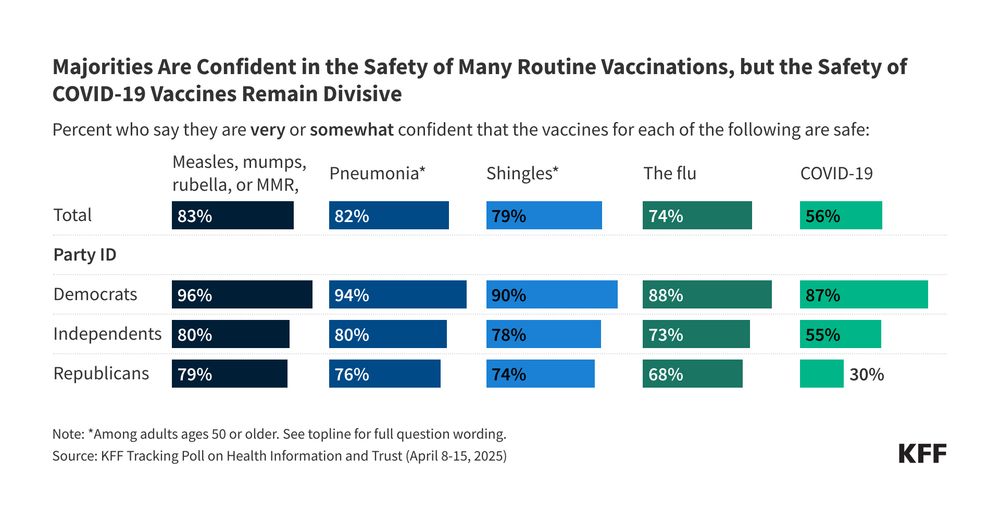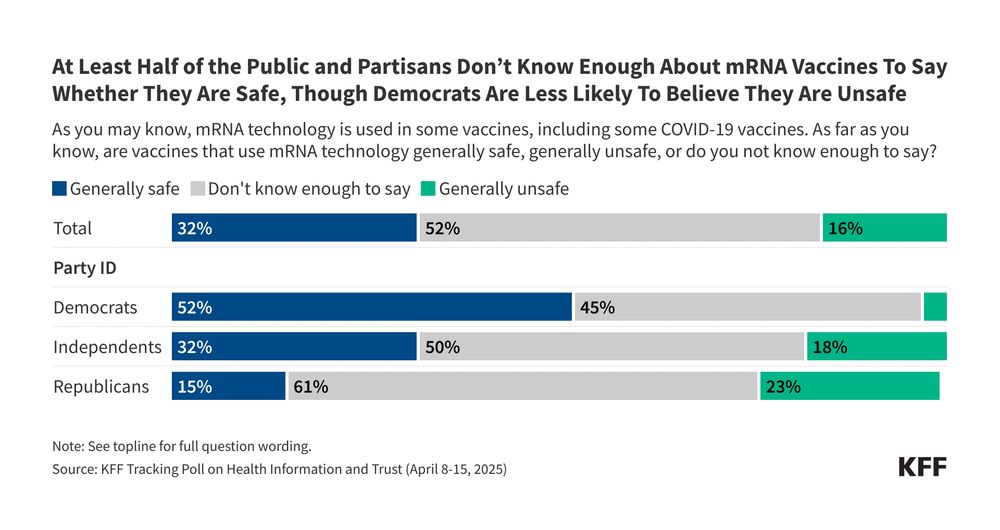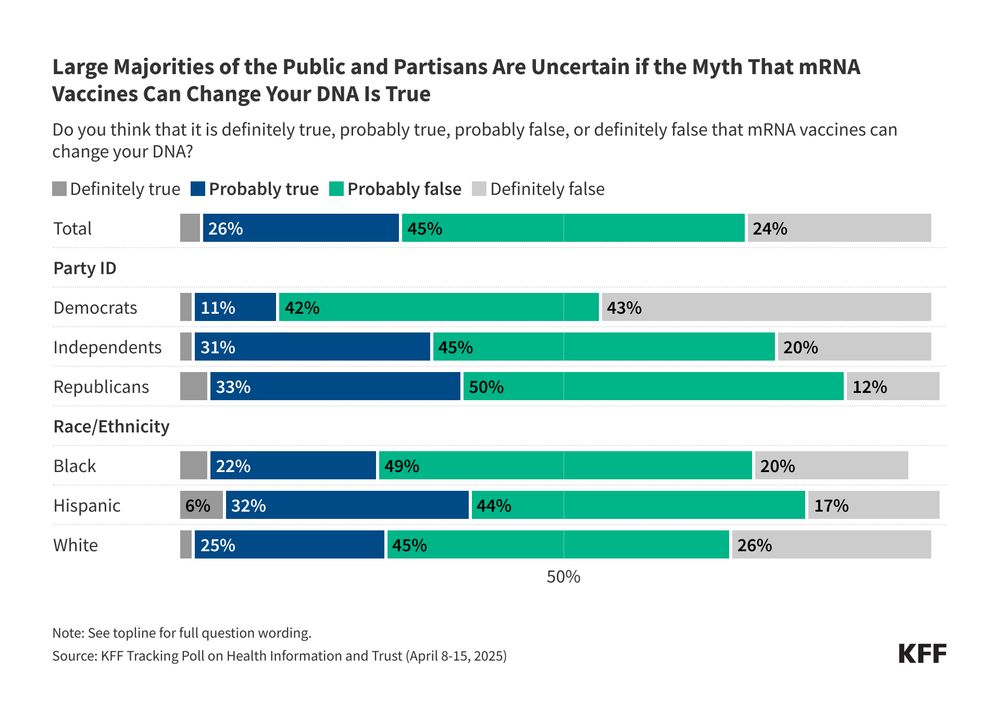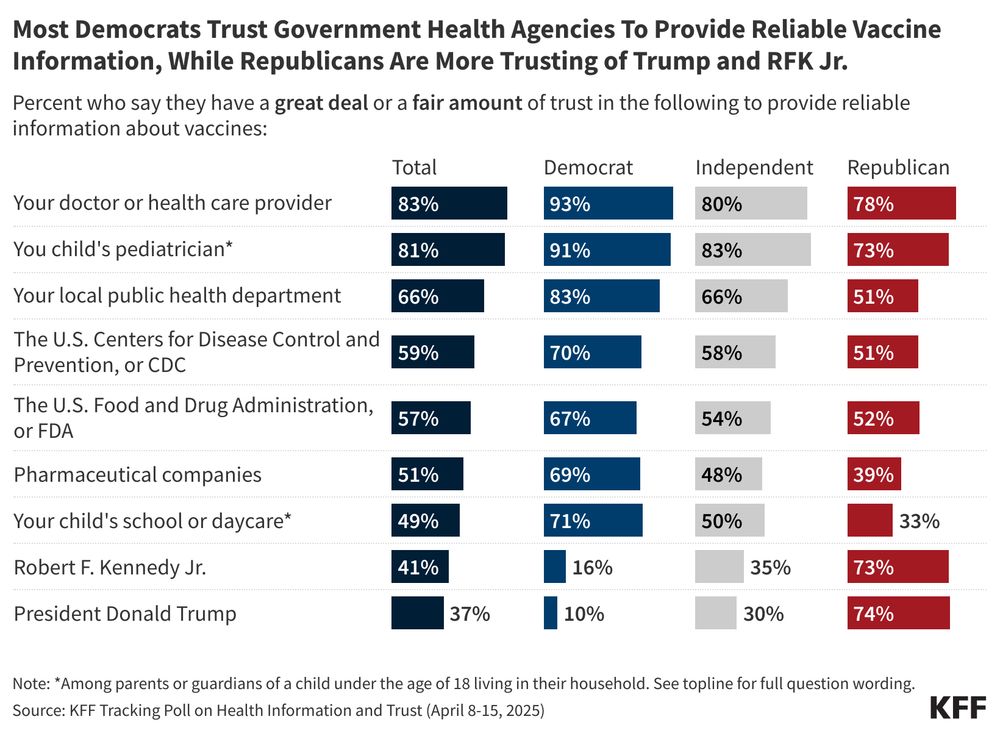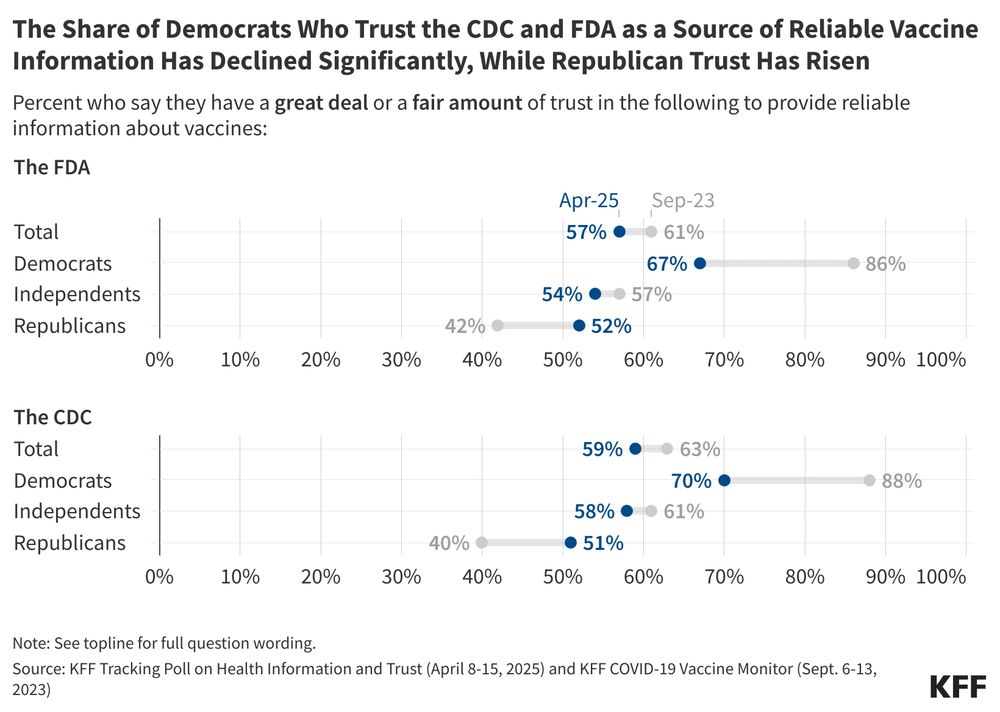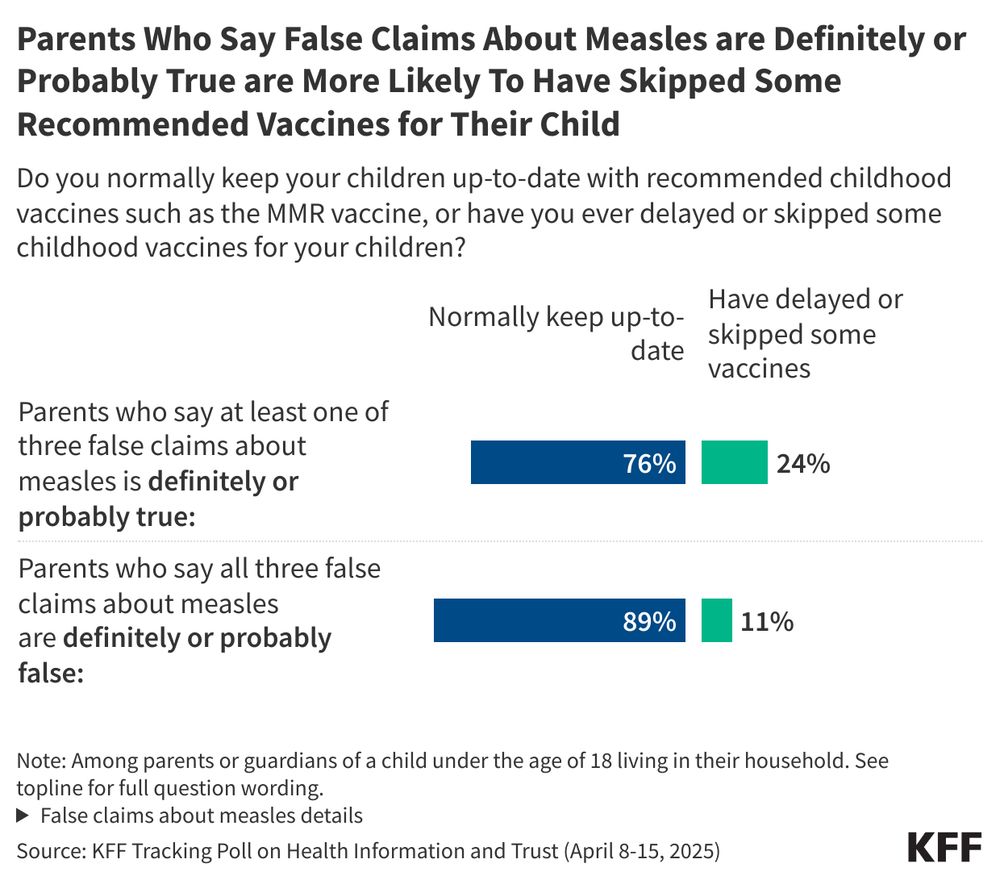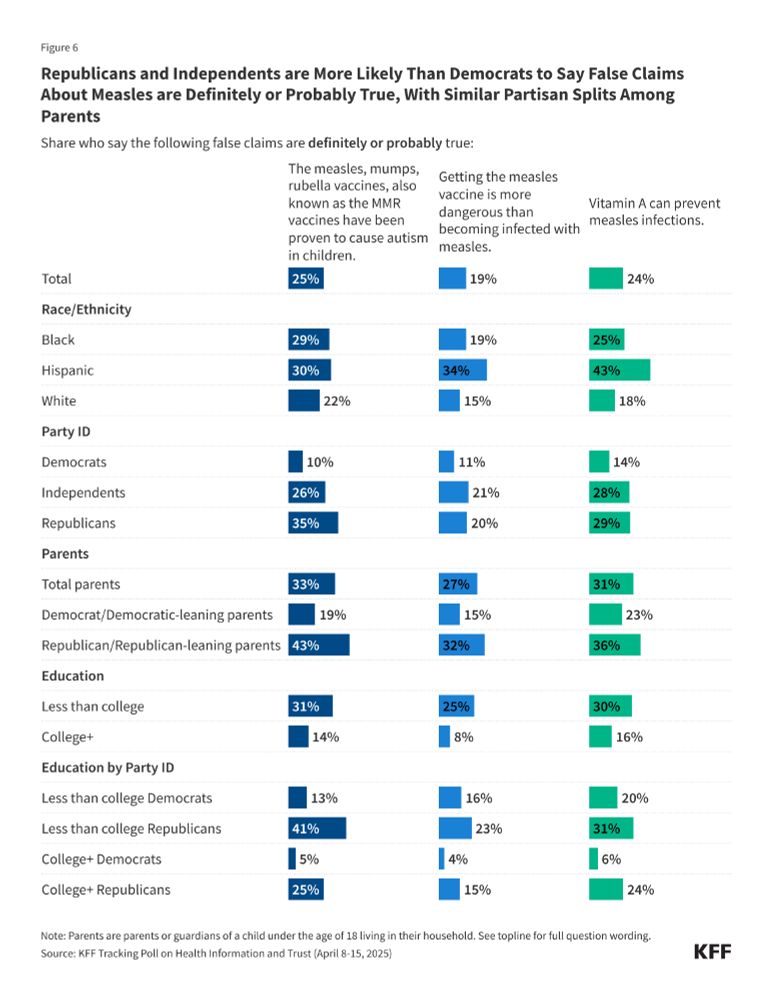Alex Montero
@alex-kff.bsky.social
170 followers
140 following
15 posts
Public Opinion Survey Analyst, KFF
https://www.kff.org/polling/
Posts
Media
Videos
Starter Packs
Alex Montero
@alex-kff.bsky.social
· May 6
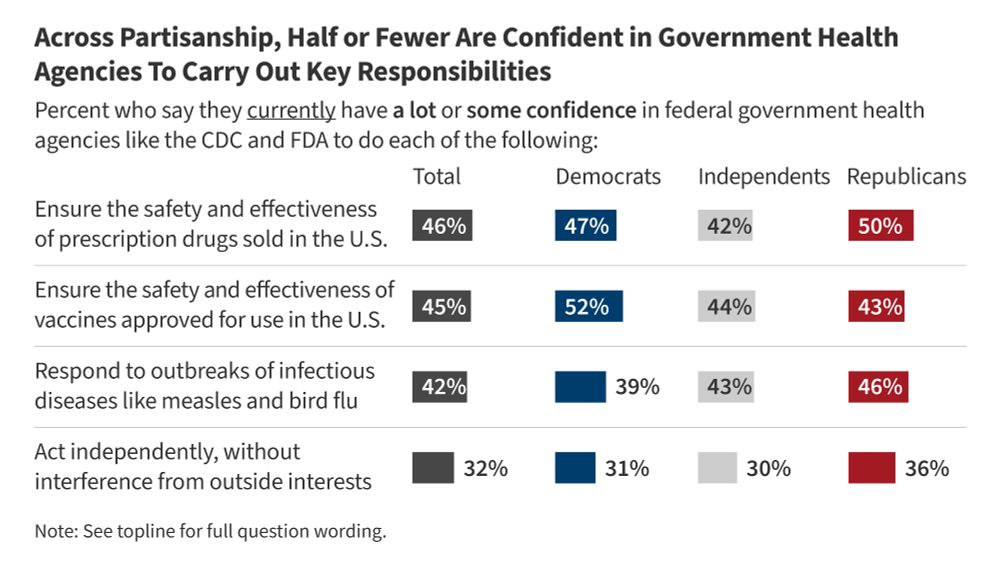
KFF Tracking Poll on Health Information and Trust: Vaccine Safety and Trust | KFF
As the Trump administration overhauls government health agencies, partisan trust in these agencies on vaccines has shifted and few express confidence in their ability to carry out key tasks. Most adul...
www.kff.org
Alex Montero
@alex-kff.bsky.social
· Apr 23
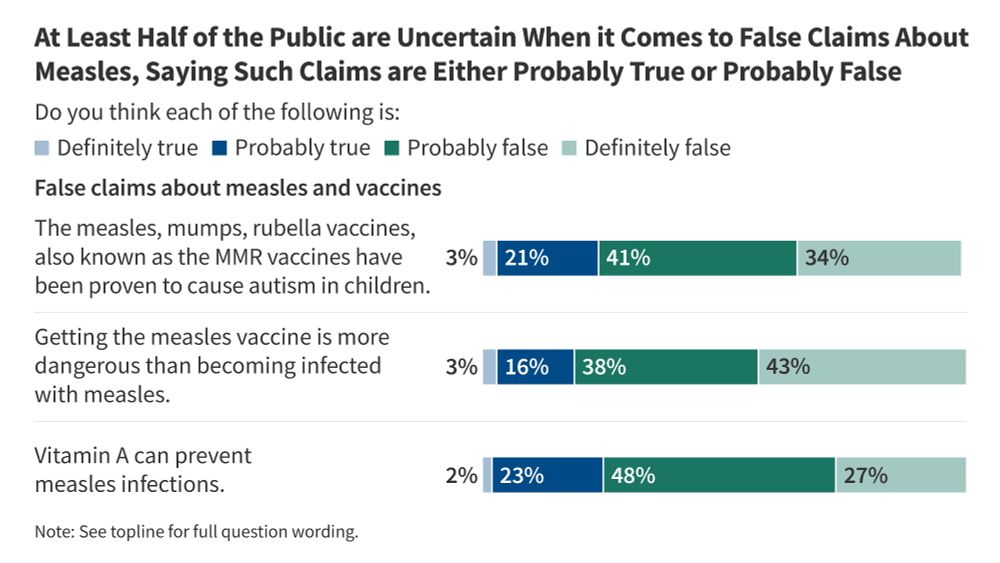
KFF Tracking Poll on Health Information and Trust: The Public’s Views on Measles Outbreaks and Misinformation | KFF
This poll looks at awareness and concern over the outbreak of measles in the U.S. and finds that a growing share of adults is encountering false claims about the measles vaccines, but many are uncerta...
www.kff.org






